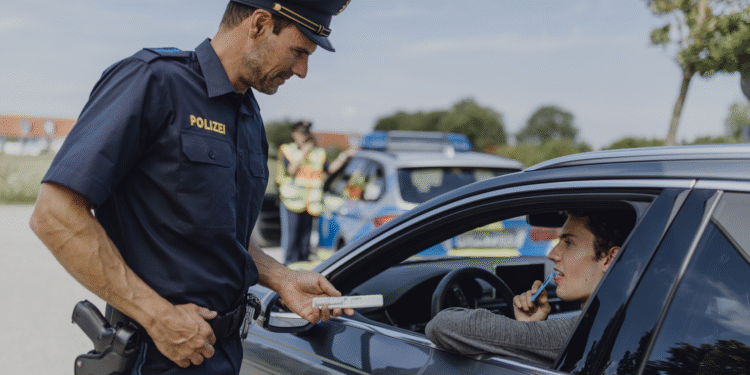The landscape of law enforcement is perpetually evolving, with technological advancements often leading the way in streamlining processes and increasing efficiency. Among these technological strides, drug testing has undergone significant transformations, especially with the emergence of the police saliva drug test. This novel method is swiftly becoming an indispensable tool for police departments worldwide.
Overview of Drug Testing in Law Enforcement
Tackling drug-impaired driving and substance abuse has long been a priority for law enforcement agencies. Traditional drug testing methods, such as blood or urine tests, have been the standard protocol. However, these methods often require sophisticated equipment, trained personnel, and considerable time for analysis and results.
The Shift Towards Saliva-Based Testing
The introduction of saliva-based drug testing to police work has changed the landscape immensely. The simplicity and rapidity with which these tests can be administered are unmatched. These innovative tests are designed to detect a range of commonly misused substances with minimal invasion of personal privacy.
Advantages of Police Saliva Drug Tests
Police saliva drug tests offer numerous benefits that have become increasingly apparent to law enforcement agencies. The ease of sample collection is a major advantage. Unlike other forms of drug testing, which can be time-consuming and require private facilities, saliva samples can be obtained quickly and with relative ease in almost any setting.
Furthermore, the immediacy of results provided by these tests is vital for law enforcement officials. Being able to assess an individual’s drug impairment on the spot helps officers make more informed decisions about arrests and charges. It also mitigates the likelihood of evidence contamination or degradation, which can occur with delays in testing.
The non-invasive nature of saliva drug tests also contributes to its rising popularity. There is a reduced risk of infections and the procedures are more acceptable to the public due to their simplicity and non-intrusiveness, leading to higher levels of cooperation.
Operational Efficiency and Cost Effectiveness
Saliva drug tests also boost operational efficiency. Law enforcement departments can avoid the lengthy bureaucratic process that comes with blood and urine tests. This increase in efficiency has the secondary benefit of cost reduction. By saving time and resources through the use of saliva drug tests, police departments can allocate these savings towards other areas of their operations.
Implementing Saliva Drug Testing in Field Operations
The implementation of police saliva drug tests in the field is streamlined by the use of portable kits. These kits enable officers to conduct tests roadside during traffic stops or at mobile drug testing sites. In the process, they contribute significantly to deterring drug-impaired driving and enhancing road safety.
Challenges in the Adoption of Saliva Drug Tests
Despite their advantages, the adoption of saliva drug tests in law enforcement does come with its challenges. Concerns about the accuracy of these tests, in comparison to traditional methods, has been a point of debate. Ensuring the reliability and validity of tests is of paramount importance to avoid wrongful convictions or the dismissal of evidence in court.
Nevertheless, continual improvements in testing technology and the establishment of stringent regulatory standards have acted to mitigate these concerns. Strides in ensuring that test results meet the necessary criteria for admissibility in legal proceedings have bolstered confidence in saliva-based drug testing among law enforcement professionals.
International Perspectives on Saliva Drug Testing
Countries around the world have begun to recognise the potential of police saliva drug tests. In regions where it has been adopted, there is evidence to suggest a decrease in drug-impaired driving incidents. Community safety has been enhanced, as those who might otherwise drive under the influence of drugs are either deterred or efficiently apprehended.
Training and Public Awareness
The successful deployment of saliva drug tests is underpinned by appropriate training programs for officers and education campaigns for the public. Law enforcement personnel must be adequately trained to administer the tests accurately and interpret the results correctly. Additionally, public awareness campaigns are crucial to inform citizens about the changes in policing methods and to promote the benefits of such advancements in drug testing.
The Future of Drug Testing in Law Enforcement
The rise of police saliva drug tests marks a considerable milestone in the evolution of law enforcement practices. As technology continues to progress, it is likely that such methods will become more refined and widely accepted. Research is ongoing to expand the range of drugs that can be detected and to improve the accuracy and speed of results.
In conclusion, the innovation of saliva-based drug testing is revolutionising law enforcement operations, contributing to safer communities, and streamlining the policing process. As these tests continue to gain acceptance and validation within the legal system, their role in law enforcement will undoubtedly become more integral. The promising trajectory of police saliva drug tests reflects the ongoing commitment to advancing public safety and the efficacy of policing strategies.
Overall, the continuous advancement and integration of saliva drug tests in policing point towards a future where law enforcement can operate with increased agility and responsiveness, ultimately enhancing the welfare of society at large.













